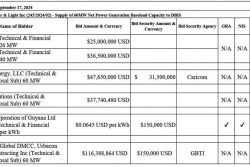It seems that the real shock that has hit the larger countries of the globe now facing economic turmoil, is the continuing nature of the economic crisis that came on in December 2007. Particularly in the United States it was felt it would be over by now, almost the eve of the next presidential election in November 2012. Instead American policymakers have found themselves going through a continual scare, with little hope now of a quick revival. From afar, of course, to many observers the crisis is perceived as more than an economic one. There is, as well, a perception of what the Americans call a gridlock of governmental decision-making, that is either inhibiting meaningful decisions from being made, or when made, being quickly implemented. Non-Americans now understand the highly decentralized nature of the US decision-making system that requires extensive negotiation between the varying levels of the federal system.
That the system is periodically subject to paralysis is not news. But American specialists in politics will tell us that getting around the periodic paralysis, or threats to paralysis, is the capacity of the President and his political assistants to negotiate the system in the way that the system knows, that is by conceding political debts to the other parts of the system. President Lyndon Johnson was a master of that trade. The other parts of the system are the Senate and House of Representatives with specific roles in national decision-making. The trading of concessions between the three has come to be known as pork-barrelling – a process in which the members of the Congress can in turn satisfy their constituents and other players in the arena like big business in the various states and Congressional districts, and also appease their political associates and the servants of the Senators and House Representatives.
This process has become a way of life in American politics, and has been well recognized for a long time both within and outside the United States. But it has always been felt first, that the economic system had enough flexibility to sustain it; and secondly, that both Congressmen and the presidential leadership had enough good sense to know when to come to the point of compromise and make mutual concessions towards arrival at acceptable decisions. But it is this that seems to have in some measure broken down, and it has done so almost on the brink of new federal elections, and the presidential election. The breakdown is exacerbated by two factors. First is the appearance on the American political scene of what appears to be an intense ideological division between the Democrats and the Republicans, intensified by a belief among the Republicans that, contrary to the usual process, the more radical position taken is one that will satisfy their constituencies and permit election, or re-election. The extent to which a traditionally described liberal Republican with a record of electoral success like Mitt Romney has felt it necessary to stretch himself towards positions attractive to the conservative elements of the party is indicative of this.
A second factor, really exacerbating the effect of the first, is a perception that President Obama has seemed to hesitate as to precisely what policies he should implement, and how far he should make concessions to the Republicans. The Republicans would appear to feel that they can entice him into long deliberations, gradually exhausting the time at his disposal between now and the elections, and leaving the electorate the impression, to the dissatisfaction of his hitherto enthusiastic supporters, that he is a temporizer. That they have had some success in this strategy is indicated by the polls which show declining confidence in his ability to reach effective decisions, particularly on the economy.
On the other side of the North Atlantic, with the exception of the United Kingdom and Ireland, the dominating impression of inflexibility of the coalition systems in operation, against the need for quick and effective decision-making is also apparent. The straight two-party competitive system is not much in evidence in countries like Greece, and particularly Italy, now being forced to meet the requirements for effective functioning of a Eurozone dominated by Germany, and in some measure by France. The creation of the Eurozone and its standard bearer, the euro, is a matter of much pride in the Federal Republic in particular, and the current turmoil in first Spain and Portugal and now in Greece and Italy is deemed to threaten the major economic policies that are reflective of the Europeans’ desire to match the size and scale of the United States economy, and latterly the surge of Chinese economy.
But even in Germany, previously characterized by a form of two-party system at the federal level, the trend in recent years has been one in which both of the leading parties, the Social Democrats and the more conservative Christian Democratic Union, have had to subordinate their autonomy to coalition arrangements with smaller parties. At another level too, the decision-making of the Federal Government is not constitutionally autonomous, but subject to adjudication by a constitutional court. In that regard, Chancellor Angela Merkel has not only had to be sensitive to her coalition partners, but also to the fact that even when she has come to agreement with them, the decisions of the government can still be challenged at the level of that court. The result has been that the negotiations with Greece in particular, for example, which have entailed extensive monetary support by the participating governments of the Eurozone, have had to be conducted in that context, with the attendant delays, and then compromises, to ensure that the decisions are not challenged at the judicial level.
So other countries of the world, concerned about the potentially negative effects of the American and European political processes on the crisis, have had to hold their noses as these systems have worked themselves through. The British, who are not in the Eurozone, had boasted about the decisiveness with which David Cameron has been dealing with the difficulties of the UK economy, and in some respects praising themselves for not joining the zone when it was established. But two factors affect the British nonchalance over the zone’s difficulties. The first is that the British economy is still barely holding its own, at the cost of a certain amount of deprivation among the middle and working classes, as indicated in the spurts of rioting that have occurred in recent months. The second fact is the awareness of the British that their own economy, though out of the Eurozone, is highly integrated with the overall European Union economy of France, Italy and Germany, et al, and can be affected by excessive turmoil in, or even the break-up of, the Eurozone as a currency system.
That the North Atlantic powers have been seeking the cooperation of the so-called emerging economies in their present economic turmoil recognizes two things, in the light of the fact that those economies would appear to be holding their own in terms of economic expansion and relative currency stability. First, that those economies, recently accommodated in terms of international decision-making in the new G20 system, are building alternative arenas for international economic engagement – the significant economic relations of China with Brazil and Argentina and some African countries is indicative of this. The second is that the deep interlocking of the American and the Chinese economies, and more and more, their currency systems, is creating a new interdependence between them and the North Atlantic powers.
In Caricom, whose South America-located members, are increasingly feeling the strength of countries like Brazil and Brazil’s international concerns, we have not yet seen much deliberation on the global turmoil. The effects of the North Atlantic recession is observed, in terms of its effects particularly on Caricom’s tourism economies, but there remains some expectation that that arena will eventually recover. We are silent, with trepidation, about what can happen on the European continent, and we are hoping that we can, in some way, engage the emerging economies. But there is still little sense that a Caricom regional view is being taken of the implications of the crisis. We should hear from our collective leadership on this, presumably well advised by their Caricom Secretariat.




